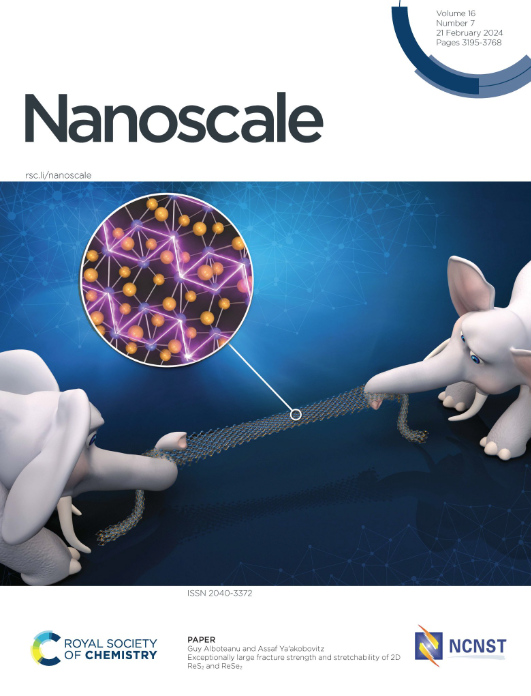便捷合成缺陷 ZnS-ZnO 复合纳米片,用于高效压电催化制取 H2
IF 5.8
3区 材料科学
Q1 CHEMISTRY, MULTIDISCIPLINARY
引用次数: 0
摘要
研究人员开发了一种简便的方法来合成超薄 ZnS-ZnO 纳米片。以 ZnS(en)0.5 为前驱体,通过简单地调节合成温度,成功地获得了具有硫空位的 ZnS-ZnO 复合纳米片。ZnS-ZnO 复合材料的形成导致在两种材料的界面上形成异质结,从而增强了压电产生的电子和空穴的分离。此外,在热处理过程中,硫空位也同时被引入到 ZnS 晶格中。这种带有硫空位的缺陷 ZnS 带隙变窄,激发能量变低。因此,与 ZnS 和 ZnO 催化剂相比,有缺陷的 ZnS-ZnO 复合纳米片具有更高的压电催化活性,其性能超过了大多数已报道的压电催化剂。此外,ZnS-ZnO 复合纳米片在五个循环的催化反应中都能保持稳定。该研究为提高压电催化性能以生产 H2 提供了一种前景广阔的方法。本文章由计算机程序翻译,如有差异,请以英文原文为准。
Facile synthesis of defective ZnS-ZnO composite nanosheets for efficient piezocatalytic H2 production
A facile approach was developed for the synthesis of ultrathin ZnS-ZnO nanosheets. By simply manipulating the synthetic temperature, ZnS-ZnO composite nanosheets with sulfur vacancy are successfully obtained using ZnS(en)0.5 as precursor. The formation of the ZnS-ZnO composite leads to the creation of a heterojunction at the interface between the two materials, which enhances the separation of piezogenerated electrons and holes. Additionally, sulfur vacancies are concurrently introduced into the ZnS lattice during the heat treatment process. This defective ZnS with sulfur vacancies exhibits a narrowed bandgap and low excitation energy. Consequently, the defective ZnS-ZnO composite nanosheets demonstrate much higher piezocatalytic activity compared to ZnS and ZnO catalysts, surpassing the performance of most reported piezocatalysts. Furthermore, the ZnS-ZnO composite nanosheets maintain stability over five cycles of catalytic reactions. The study offers a promising approach for enhancing piezocatalytic performance for H2 production.
求助全文
通过发布文献求助,成功后即可免费获取论文全文。
去求助
来源期刊

Nanoscale
CHEMISTRY, MULTIDISCIPLINARY-NANOSCIENCE & NANOTECHNOLOGY
CiteScore
12.10
自引率
3.00%
发文量
1628
审稿时长
1.6 months
期刊介绍:
Nanoscale is a high-impact international journal, publishing high-quality research across nanoscience and nanotechnology. Nanoscale publishes a full mix of research articles on experimental and theoretical work, including reviews, communications, and full papers.Highly interdisciplinary, this journal appeals to scientists, researchers and professionals interested in nanoscience and nanotechnology, quantum materials and quantum technology, including the areas of physics, chemistry, biology, medicine, materials, energy/environment, information technology, detection science, healthcare and drug discovery, and electronics.
 求助内容:
求助内容: 应助结果提醒方式:
应助结果提醒方式:


